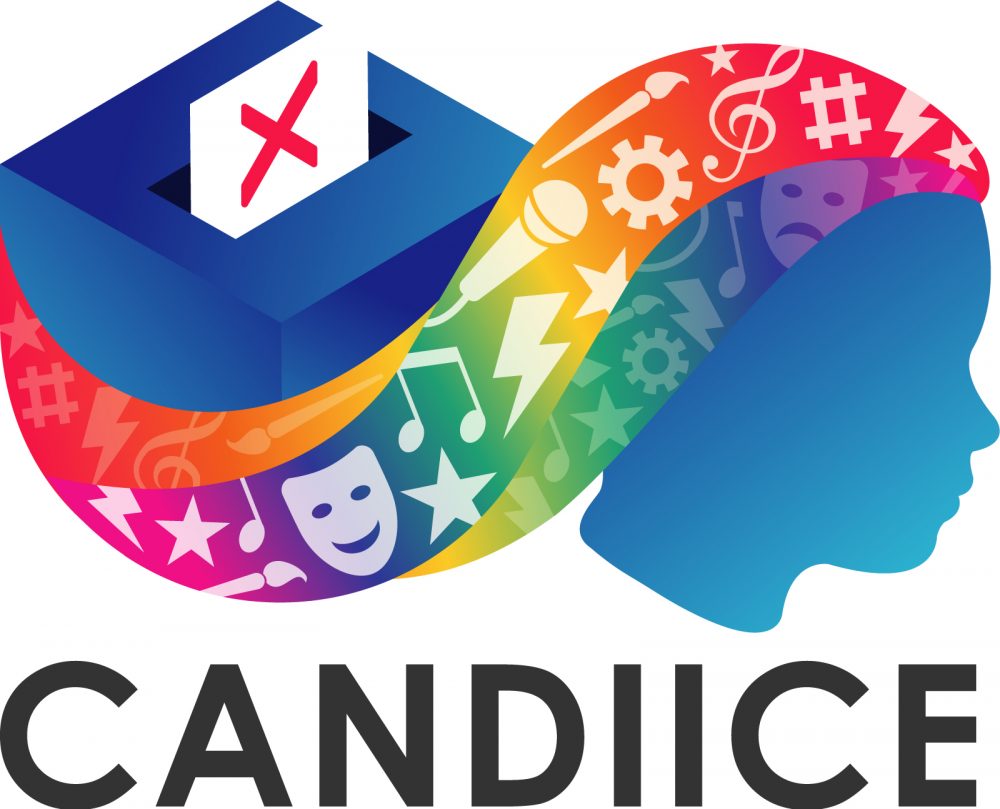Keynote Inputs
An Introduction to CANDIICE
Creative Approaches to Democracy Education. Adam Newman Turner, CANDIICE coordinator, introduces the CANDIICE project and discusses the reasoning behind the launch of the project.
National Museum of Contemporary Arts, Lisbon
Emilia Ferreira, Director of the Museo Nacional De Arte Contemporanea in Lisbon, introduces the MNAC and shows how the museum successfully engaged thousands of people, including many children, in very practical and creative ways during the long periods of closure and lockdown due to the COVID-19 pandemic. Working with artists in residence they encouraged everyone to draw through live lessons on a YouTube channel, they then asked for responses to a famous 19th-century painting. This led to a mass participation, many interpretations were submitted, and this resulted in an exhibition of popular art, mounted when lockdown ended. Responses came from all over the world.
Professor Paul R. Carr
UNESCO Chair in Democracy, Global Citizenship & Transformative Education. University of Quebec, Canada.
"Believing that it exists, when we're not sure what it is…Could we paint a picture of Democracy?"
Professor Carr sets out a comprehensive global perspective which contextualises the strengths, weakenesses and threats to democracy in 2022. He gives a succinct critical analysis of modern media-driven democracy in relation to imperative global issues of sustainability, inequality, human rights, militarism and xenophobia. He outlines the democratizing significance of major cultural art forms, social movements, protests and the role of education in developing values-based solidarity. The lecture is punctuated by inspiring images, quotes, references and video clips (55 minutes).
The other life of animals – young people explore animals and humans through art
Emilia Ferreira, Director of the Museo Nacional De Arte Contemporanea in Lisbon
In the late spring of 1972, Stockholm hosted a historic meeting, in which representatives from 113 countries gathered to discuss development and environmental problems. The Stockholm Declaration emerged from that meeting, announcing the creation of the United Nations Environment Program, with proposals to improve the living conditions on the planet.
Difficult Conversations? – Using music to discuss contemporary racial activism
Dr Gavin Lennon, Coventry University
The #BlackLivesMatter Movement is the most recent expression of a long, international Black freedom struggle. Since the murders of George Floyd and Breonna Taylor in 2020 made the movement impossible to ignore, and brought it to the attention of students to an unprecedented degree.
Creatively engaging with ‘hidden utopias’ – visions of our future
Michelle Tourier, Durham University
Democracy around the world is increasingly seen to be “in crisis”. This crisis is typically exemplified through growing distrust in democratic processes, distrust in traditional gatekeepers of knowledge, increased support for authoritarian solutions, suspicion of those who are culturally ‘other’, the troubling of truth, and rising populism.
Lisa Jacques. Arts Learning Programme Manager, Nottingham, UK
Lisa will discuss the joys and challenges of cultural organisations and school partnerships, what this collaboration looks like, and the impact it has on both institutions. Lisa will draw upon the research from the Schools of Tomorrow programme which she currently manages at Nottingham Contemporary.
